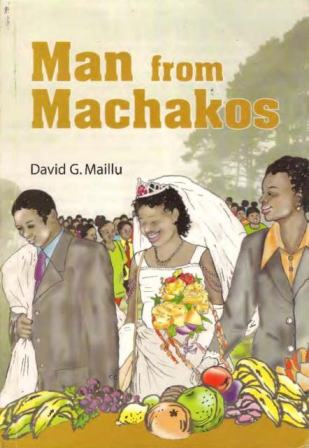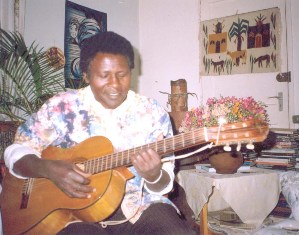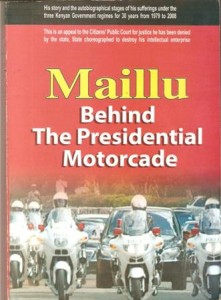By Daisy Nandeche Okoti
Published September 14, 2014
 When Kivindyo, banking on his academic qualifications, fails to be recruited into the Kenya Defence Forces and loses the woman of his dreams, his world appears to fall apart.
When Kivindyo, banking on his academic qualifications, fails to be recruited into the Kenya Defence Forces and loses the woman of his dreams, his world appears to fall apart.
So what is next for this young man with only a secondary school certificate to his name in a competitive world that places undue emphasis on academic qualifications? That is one of the questions Man from Machakos, a novel by Kenya’s prolific writer, David G Maillu, grapples with.
RELATED: Why Media for Children Matter
Published in 2007 by Nairobi’s Jomo Kenyatta Foundation, the novel that is set in eastern Kenya among the Akamba community, weaves together an ordinary story about the struggles of a young man who must find his footing and bearing in a fast-changing environment. What is the place of one’s roots in a world that insists on modernity?
It is only Kivindyo’s father, a man who is well grounded in his people’s traditional ways and who believes deeply in the significance of understanding what one’s purpose in life is regardless of one’s personal circumstances who enables Kivindyo to retain some sanity as he recovers.
Kivindyo’s opposite is Justus Mwaka who is presented as Kivindyo’s best friend but who does not hesitate to betray him. As deceit, betrayal and jealousy envelop Mwaka who mistakenly sees western ways as the only secret to success in life, Kivindyo regains his sure-footedness and self-actualisation from his people’s traditional values, traditions and customs.
Justus Mwaka is the only character who uses a foreign name—Justus—in Man from Machakos. Could this be the author’s way of establishing his character as someone who places little value in his traditional Akamba values and his blind following of the Western cultures?
RELATED: What Devours the Akamba Community of Kenya
 Man from Machakos that was reprinted in 2010 is an easy read, especially because the writer seems to tell the stories of these people without seeing the need to exaggerate or understate anything.
Man from Machakos that was reprinted in 2010 is an easy read, especially because the writer seems to tell the stories of these people without seeing the need to exaggerate or understate anything.
Stylistically, Maillu who himself is a singer and guitarist, uses songs to break the monotony of narration as well as reveal the cultures of the people in depth.
Dialogue is used sparingly and the way youngsters use words is different from the older generation who use proverbs and reflective tones.
Themes of poverty, forgiveness, unemployment, humility and dignity are spread throughout the novel as the author seems to directly address the reader on the need to take up what they have, and make something out of their lives. The themes are also presented in a way that attempts to caution the readers about the danger of abandoning that which they know to be good in pursuit of an elusive dream.
RELATED: How Dust, ‘Kenya’s Novel of the Year’, Unearths Uncomfortable Truths
 The secret of the human destiny is in our day to day activities and the destiny of a people can be made or marred by either recognising or failing to recognise this fact.
The secret of the human destiny is in our day to day activities and the destiny of a people can be made or marred by either recognising or failing to recognise this fact.
The author also agrees that modernisation is not bad in itself; it only fails to serve its purpose if it is not linked to the total realisation of a person’s innermost dreams and aspirations. This point is demonstrated when, after Kivindyo has found his bearing in life and his life is impacting those around him positively, he links up with people who have travelled across the country and the continent to bring development to the people of Kyevaluki.
Like in other books by Maillu, the ‘love’ for a woman almost stands between the hero and his calling in life. But rather than destroy him, Mbeleeti’s rejection of Kivindyo empowers him.His rejection by Mbeleeti is one of the most significant conflicts in the book because through it, the Kivindyo the reader parts ways with at the end of the book is a refined man.
RELATED: What If Kenya’s Ngugi wa Thiong’o Wins the 2013 Nobel Prize for Literature?
For its timeless themes and a style of characterisation that closely links to the subject of the book, Man from Machakos is relevant to today’s society. The Akamba values which are highlighted in the book resonate with those of other Kenyan as well as those of other Africans in general.





